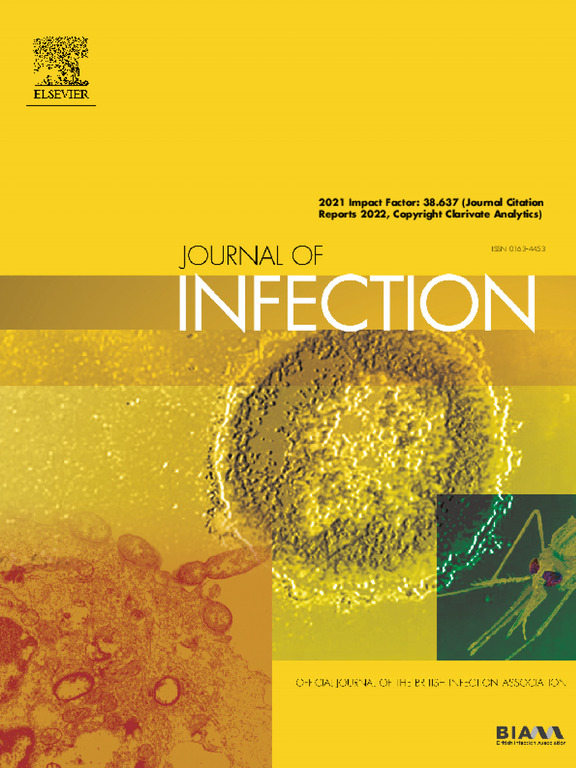实体器官移植受者人类疱疹病毒-8相关疾病的临床处理
IF 14.3
1区 医学
Q1 INFECTIOUS DISEASES
引用次数: 0
摘要
在实体器官移植受者(SOTRs)中,致癌病毒人疱疹病毒-8 (HHV-8)也被称为卡波西肉瘤疱疹病毒(KSHV)导致四种临床疾病:卡波西肉瘤、原发性分泌性淋巴瘤、多中心Castleman病(MCD)和KSHV炎症细胞因子综合征(KICS)。这篇综述概述了这些临床情况,并讨论了他们的管理。尽管SOTR中HHV8相关疾病在30多年前首次被描述,但缺乏治疗数据,因此许多指导是基于其他免疫缺陷患者,特别是艾滋病毒感染者的证据。虽然减少免疫抑制和从钙调磷酸酶抑制剂切换到mTOR抑制剂可能足以治疗移植后早期KS,但对于晚期KS和KSHV相关淋巴瘤,全身性化疗是必要的。MCD和KICS通常发生在原发性HHV-8感染之后,基于利妥昔单抗的免疫化疗方案是治疗这些潜在致命疾病的基础。虽然SOTR中的HHV-8感染得到了很好的认识,但它仍未得到报道,在这种情况下,更多地认识到HHV-8的不同临床表现对改善结果至关重要。本文章由计算机程序翻译,如有差异,请以英文原文为准。
Clinical management of human herpesvirus-8-related illnesses in solid organ transplant recipients
In solid organ transplant recipients (SOTRs), the oncogenic virus human herpesvirus-8 (HHV-8) also named Kaposi sarcoma herpesvirus (KSHV) causes four clinical diseases: Kaposi Sarcoma, Primary Effusion Lymphoma, Multicentric Castleman Disease (MCD), and KSHV inflammatory cytokine syndrome (KICS). This review outlines these clinical scenarios and discusses their management. Although HHV8-related disease in SOTR was first described more than three decades ago, there is a lack of data on treatment so much of the guidance is based on evidence in other immunodeficient patients, particularly people living with HIV. Whilst reduction of immunosuppression and switch from calcineurin inhibitors to mTOR inhibitors may be sufficient in early-stage post-transplant KS, systemic chemotherapy is necessary for advanced-stage KS and in KSHV-related lymphomas. For MCD and KICS, which usually follow primary HHV-8 infection, rituximab-based immunochemotherapy regimens are the cornerstone of treatment for these potentially lethal diseases. Although HHV-8 infection in SOTR is well recognized, it remains under-reported and greater awareness of the different clinical presentations of HHV-8 in this context is fundamental to improve outcomes.
求助全文
通过发布文献求助,成功后即可免费获取论文全文。
去求助
来源期刊

Journal of Infection
医学-传染病学
CiteScore
45.90
自引率
3.20%
发文量
475
审稿时长
16 days
期刊介绍:
The Journal of Infection publishes original papers on all aspects of infection - clinical, microbiological and epidemiological. The Journal seeks to bring together knowledge from all specialties involved in infection research and clinical practice, and present the best work in the ever-changing field of infection.
Each issue brings you Editorials that describe current or controversial topics of interest, high quality Reviews to keep you in touch with the latest developments in specific fields of interest, an Epidemiology section reporting studies in the hospital and the general community, and a lively correspondence section.
 求助内容:
求助内容: 应助结果提醒方式:
应助结果提醒方式:


